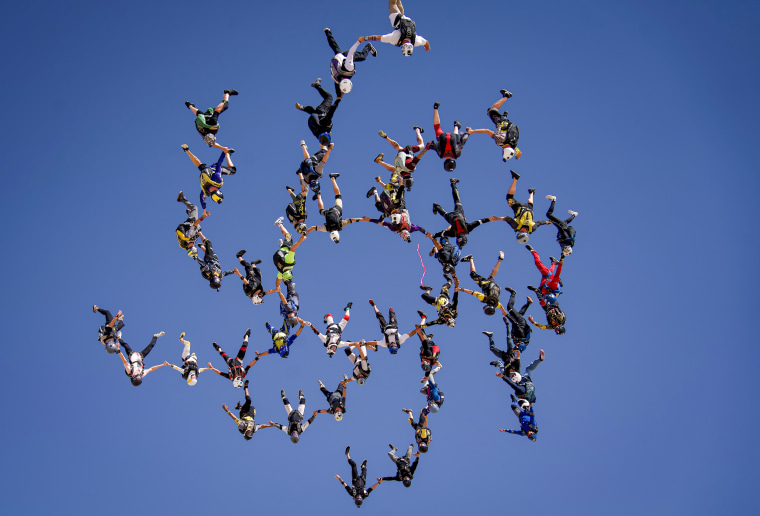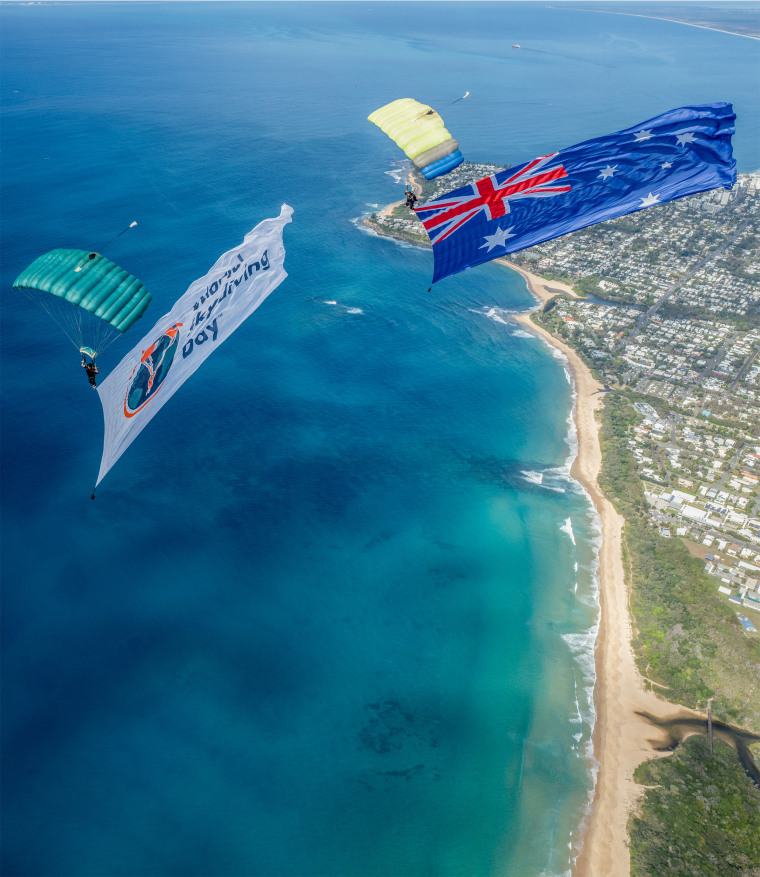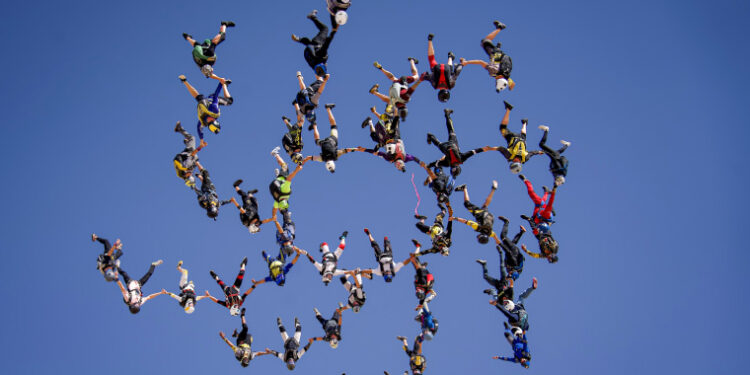Willis Cooks, a therapist and medical social worker, completed his first skydive in 2019.
“I felt as if I would pass out in the middle of the skydive,” Cooks recalled.
But he couldn’t let go of the excitement. Within seven months he earned his skydiving license.
He also quickly realized he seldom saw other Black people at the drop zones. So in 2020, he started Fresh Heir Boogie, an Instagram chat for skydivers of color. Now, it’s an annual event.
This year, more than 100 Boogie skydivers are expected to join hundreds of others to celebrate the first-ever World Skydiving Day on July 13. It’s a chance for first-time and veteran skydivers around the globe to become a part of history, as jumpers will receive certificates for their participation in the most skydives in one day.

Cooks and crew will kick off their fourth annual Fresh Heir Boogie at Skydive Spaceland Houston to coincide with the worldwide event.Skydivers are fond of an often-repeated quote by actor Will Smith, speaking about his own jump: “The best things in life are on the other side of fear.”
Brandon Johnson, who lives, coaches and teaches skydiving in Dubai for part of the year, is just one degree of separation from Smith — he jumped with the actor in an episode of his Facebook Watch series “Will Smith’s Bucket List.”
“When I started, there weren’t a lot of us [Black skydivers] at all,” said Johnson, who has been jumping for almost 10 years and has at least 14,000 skydives under his belt. Though other Black people are “astounded” when he tells them he’s a skydiver, he’s excited to see more people joining Fresh Heir Boogie.
These skydivers understand the hesitance to jump out of a perfectly good plane.

“When you get to that door, everything in your body says, ‘Don’t do this,’” said David McCrea, a sommelier and hospitality consultant who took his first jump in 2021. “Then you’re out in the sky. It is the most liberating, exhilarating thing I’ve ever felt. You reach terminal velocity and it feels like you are floating. I was immediately in love.”
He booked his second jump that same day and got his license four months later.
Terminal velocity is the point at which the diver has reached their maximum speed and won’t accelerate any faster. The feeling becomes more like floating than falling.
It took 10 jumps before McCrae overcame his fear of leaping out of a plane thousands of feet in the air.
“It took me about 30!” an amazed Cooks joked.
Regardless of time, both men were eventually smitten by the incredible quiet and peace they experienced while skydiving. That feeling of serenity is something that many skydivers mention in addition to the community they find among skydivers on the ground.
The community of Boogie skydivers, scattered throughout the world, keeps in touch online, which allows them to mentor and encourage one another and to plan meetups. Some of them have become unofficial ambassadors of the sky, spreading their love of the sport and recruiting other Black people to skydive.
Terrance Martin, an engineer for Citrix Systems, started jumping two years ago and has taken a dozen or so family members skydiving, with some other relatives scheduled to jump soon. At 48, he’s been nicknamed “School,” as in “Old School,” by some of the younger divers.
“I’m really a baby to a lot of jumpers,” he said, noting that he’s met jumpers “in their 70s and 80s and one who had been jumping for 55 years.”
Alicia Fuller may be 36, but she said her most noteworthy trip was with an octogenarian.
“My most memorable jump was with my grandma, who was 80,” said Fuller, who is now a full-time college student who wants to be a psychiatric social worker for veterans.
“I think my grandma would have done it again,” she said, but their family “moved her out of Arizona.”
Geneara Broadley, 31, a software engineer who has been jumping for five years, said that behind “the thrill, the discipline” of the sport, there’s “the camaraderie. You meet people from all around the world.”
Skydiving is an expensive sport, but the practitioners say the price is worth the results. It takes years and thousands of dollars to become a highly skilled skydiver, which means paying for gear, coaching (which might run $450-$1,000 a day) and practice time in air tunnels.
But Cooks and McCrea are determined to sharpen their skills and learn to become better skydivers.
“We can’t just be any Black folks falling out the sky,” said Cooks.
McCrea agrees. “It is a highly specialized skill to be able to conquer the feeling of hurling toward the Earth at as much as 180 miles per hour, to completely clear your mind of that to where that becomes the norm.”
“It’s so much more than falling through the air,” said Johnson. “It’s definitely harder than it seems.”
For more from NBC BLK, sign up for our weekly newsletter.







